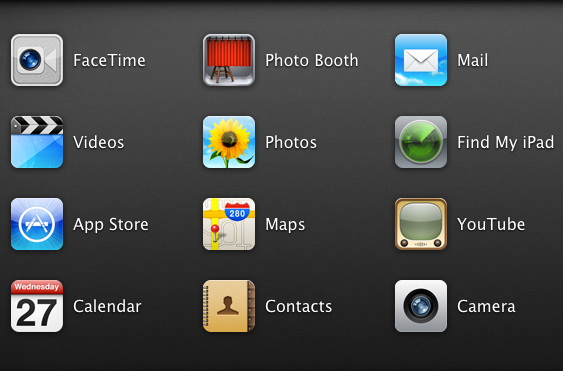For iPad, Apple's App Store will play starring role

Some interesting statistics were published by Piper Jaffray this morning noting that, among other things, Apple's App Store remains a competitive advantage that drives sales of its various iPod, iPhone and iPad devices.
You can read the full rundown in a post by our fearless editor-in-chief, but I couldn't help but ponder over how that impacts each mobile device in Apple's hardware portfolio.
You see, the iPhone is an attractive device -- some would say superior to the competition -- whose lead is bolstered by the broad adoption of its App Store. You may buy an iPhone for the looks, or the carrier, or the familiarity, or even FaceTime, but it's unlikely you're buying the product solely because of the App Store. Some time ago, before other smartphone manufacturers provided their own app stores, perhaps this was true. But now, most major smartphone platforms carry the basic apps consumers are looking for, certainly since developers broadened the amount of mobile operating systems they are willing to support. "Apps" are no longer much of a differentiator in the smartphone sector.
Similarly, the iPod remains a class-leading device whose primary purpose is to play music. All other bells and whistles are secondary; the many iOS functions of the iPod touch are a nice addition -- especially since the device serves as a trial run for an iPhone -- but they don't match the fact that the iPod's primary selling point is, and always will be, iTunes. (Not the program itself, mind you, but the ecosystem.)
Succinctly: both of these devices sell because they are better, more interesting or more productive versions of a basic device. The App Store helps them get there, but it's not the initial reason consumers begin seeking to buy a new device in the first place. (Those reasons: a need for a new phone; a way to listen to music at the gym; etc.)
But the iPad, well, that's a different story. The iPhone is used to make calls and the iPod is used to listen to music, but the iPad is used for -- well, a bunch of things. (Why do you buy an iPad? There's no obvious reason, of course, and that was an early criticism of the form factor itself.) And being an early mover in the tablet space, the iPad is winning against its first round of competition mostly because it offers a superior experience and a memorable name.
But it's not because of apps. Not yet.
In the iPad buying decision, the App Store is barely a blip on the radar, and rightly so. It's still early going to see what a tablet like this can do, app-wise. Novelty aside, the primary attraction for the iPad is the form factor and basic experience, at least for now.
So when I read Gene Munster's figures noting that the average price of iPad apps is several dollars higher than that of iPhone apps -- and Larry Dignan's extrapolation that the true value of apps is to drive device sales, as I mentioned at the top of this post -- I can't help but think that we have yet to truly see this occur for iPad sales, specifically, because it's so early.
But this tidal wave will come. There is so much more potential for the App Store to become a driver of iPad sales, certainly compared to the iPhone and iPod, namely because the iPad is not a multi-talented single-purpose device like its hardware siblings, but a multi-talented multi-purpose device, akin to a laptop.
Like the laptop computer, the tablet doesn't serve a single fundamental need. Consumers buy notebooks to check e-mail, or do work, or see family photos, or any number of myriad applications.
The iPad seems poised to follow suit. We've seen hints of this in recent months: a way to read magazines digitally; a way to stream movies on-the-go; a high-tech day planner; a portable PowerPoint presentation viewer. And that, to me, suggests that the App Store -- the content ecosystem that name denotes -- has yet to play its greatest role for Apple.
